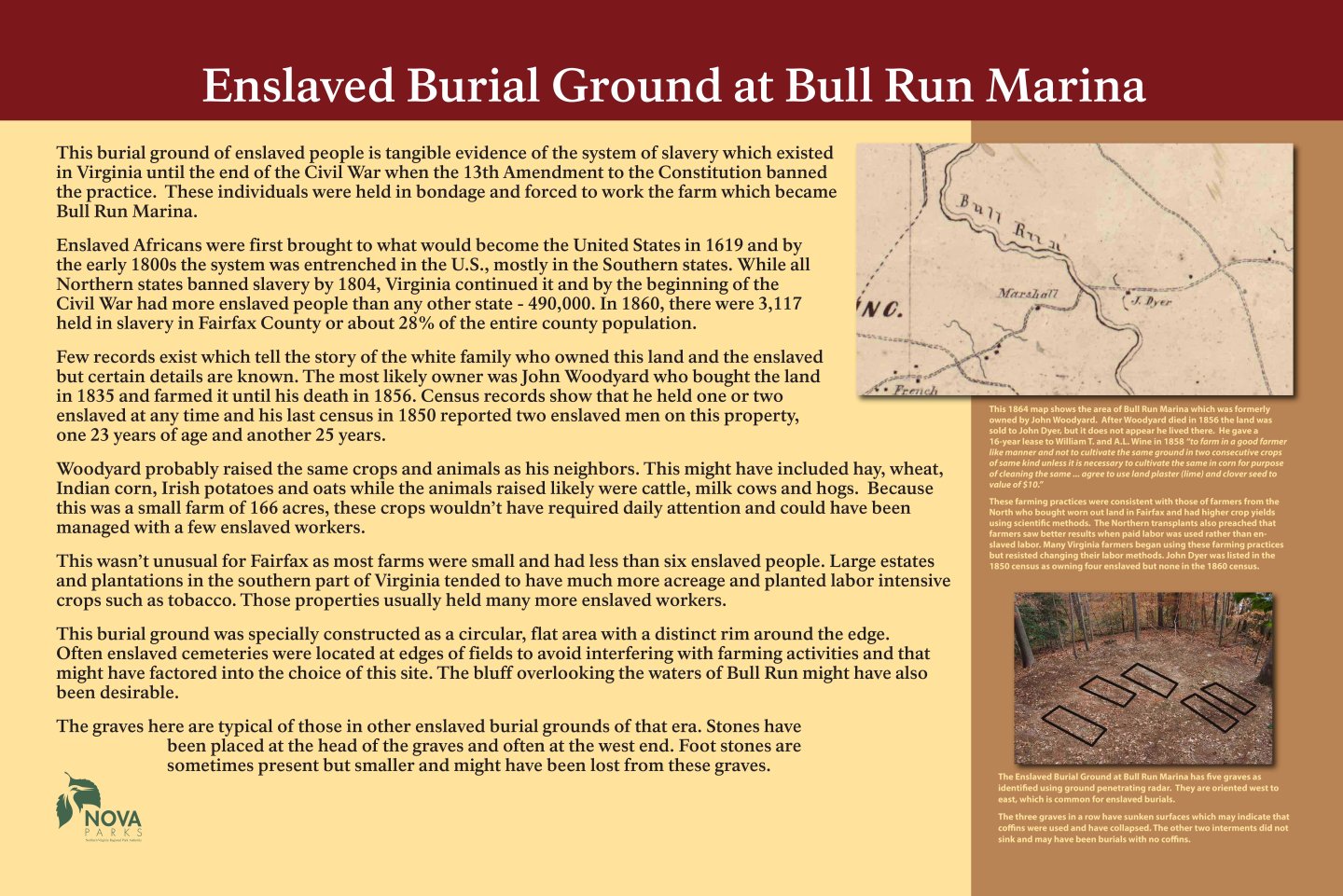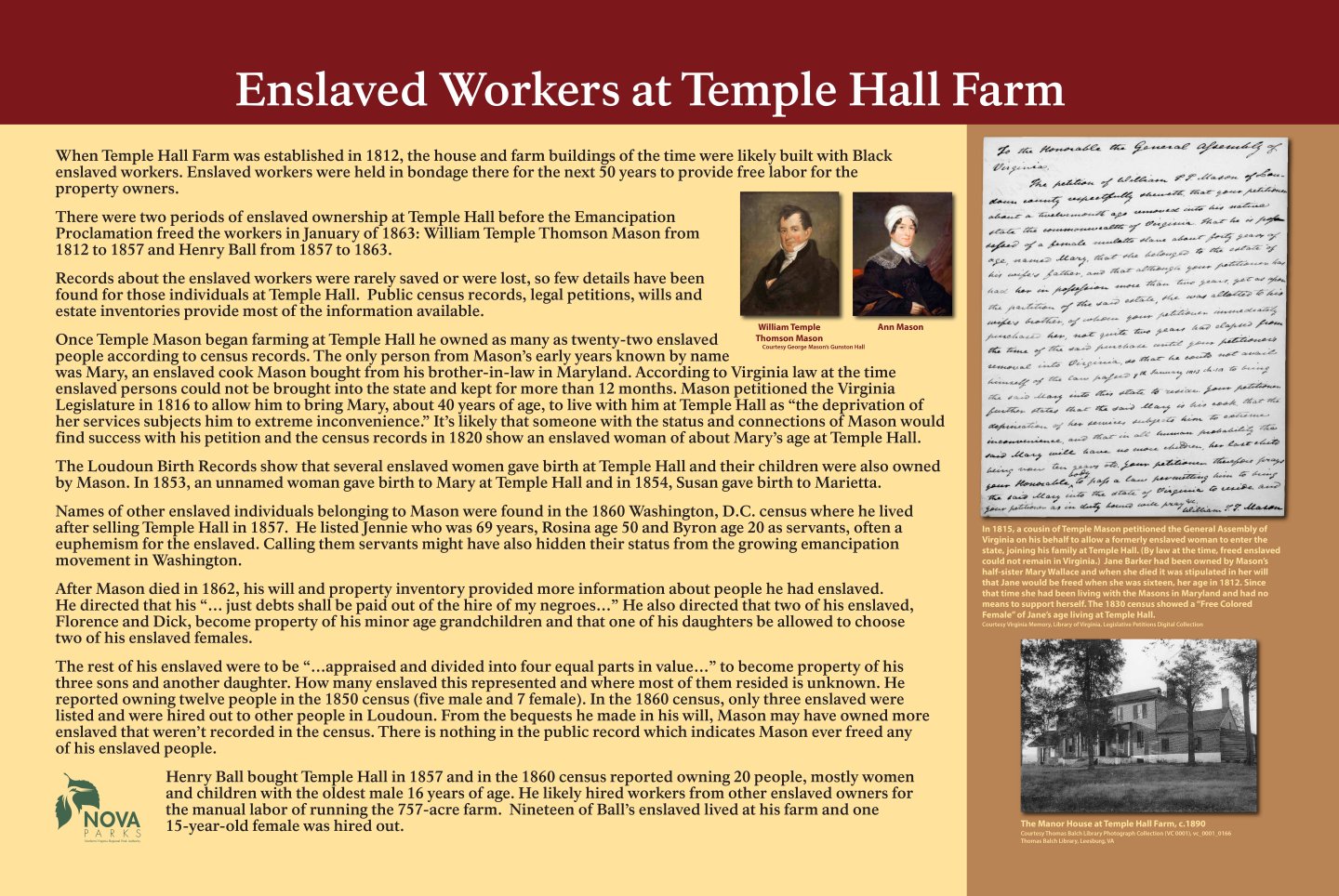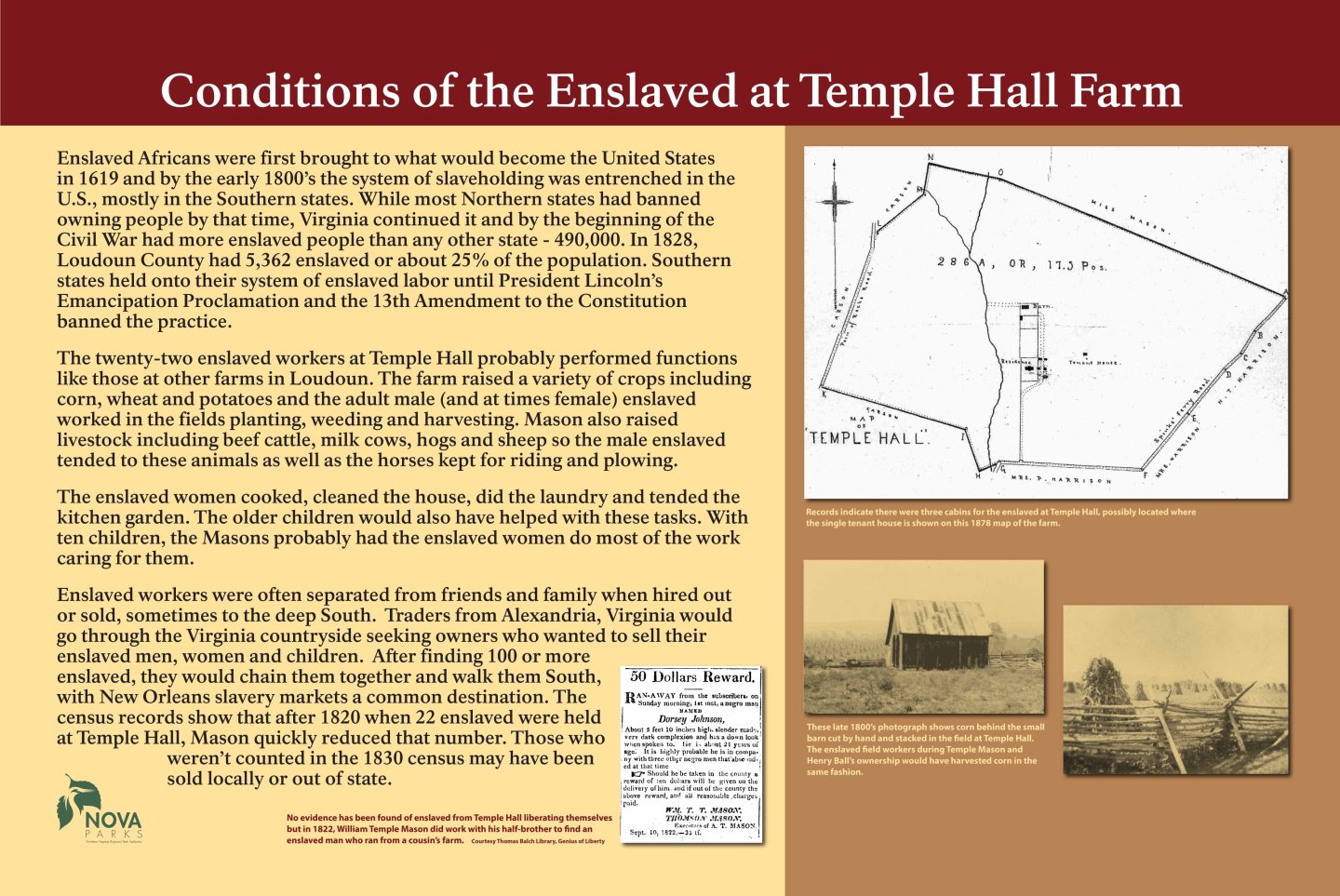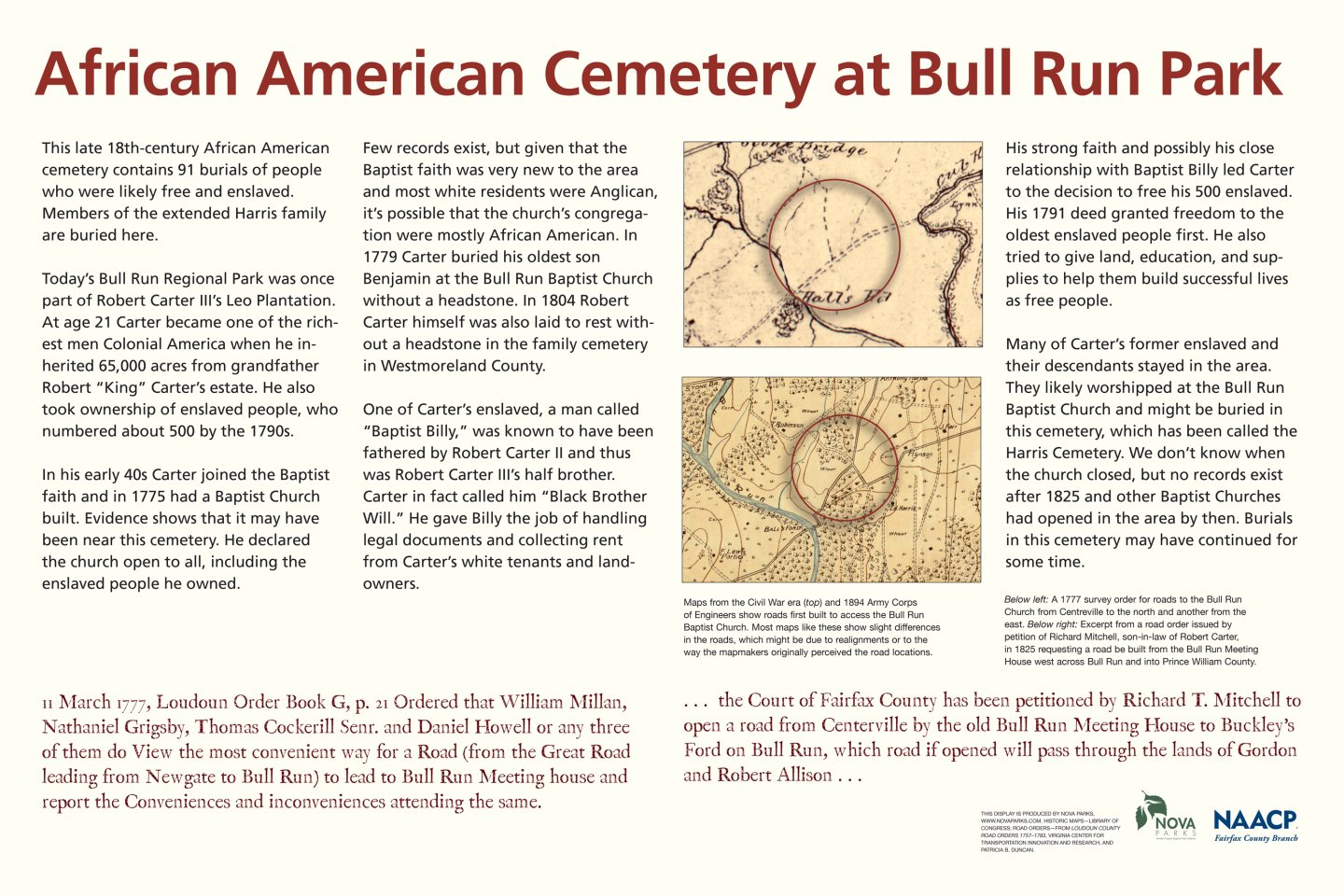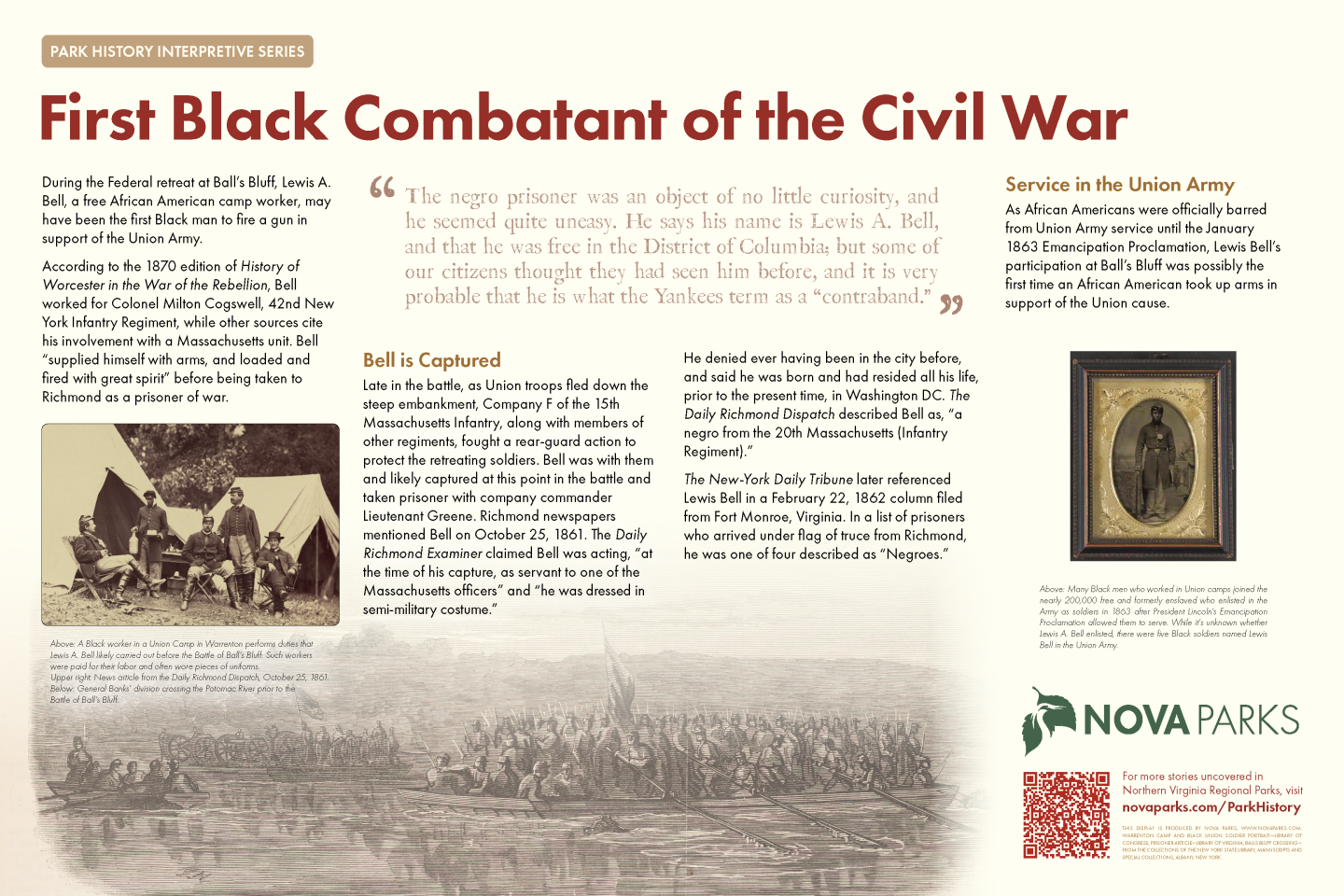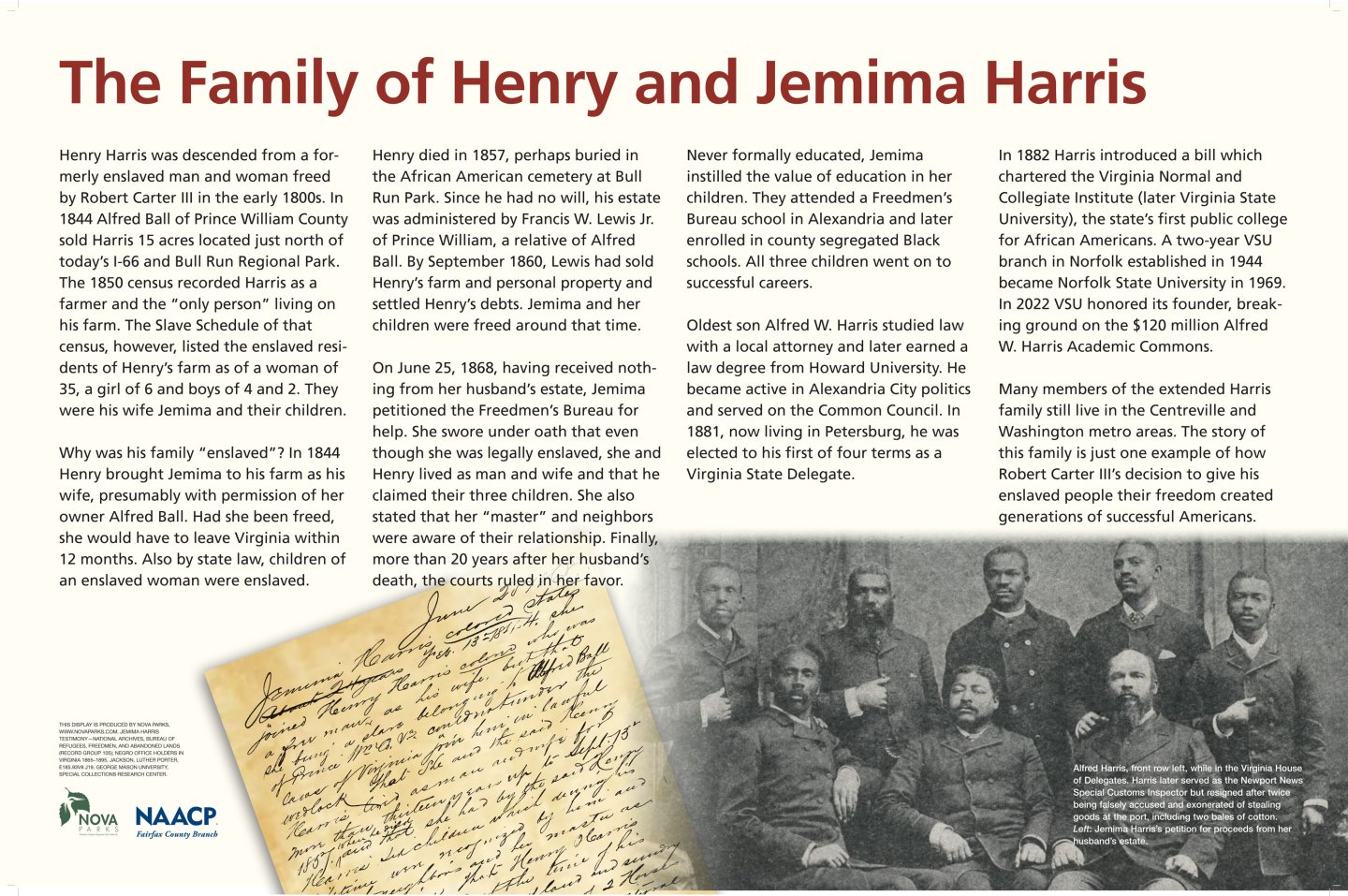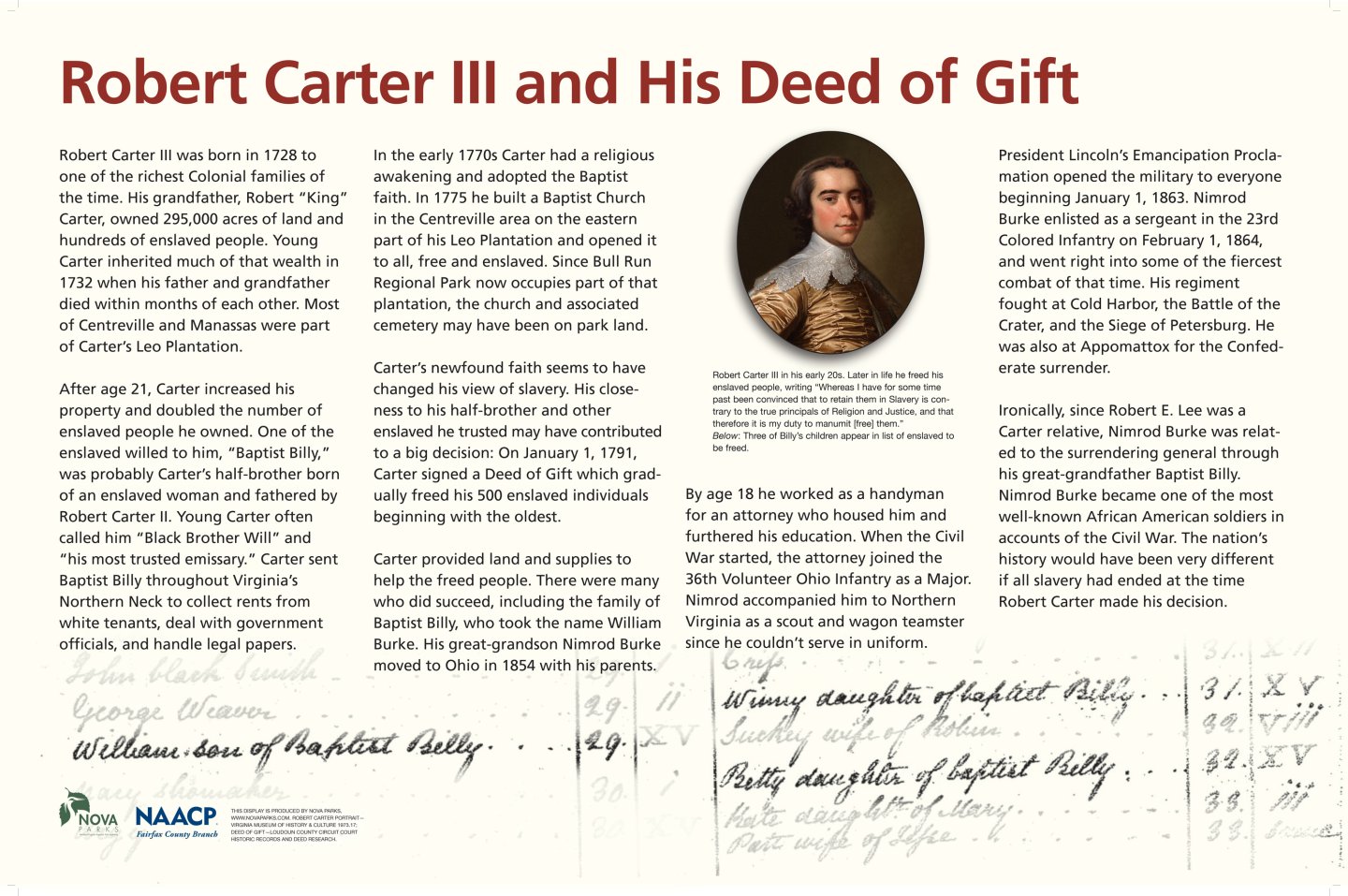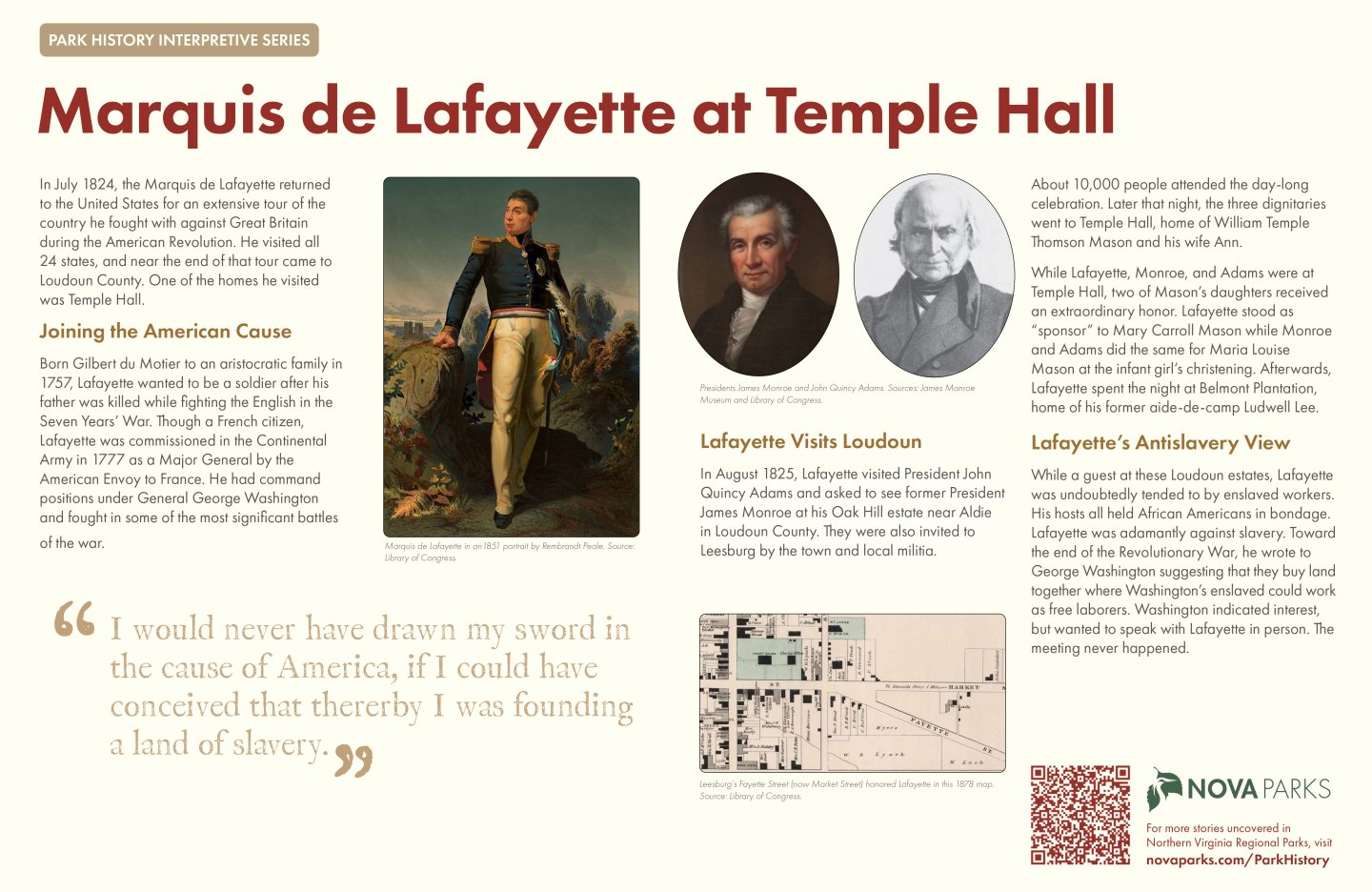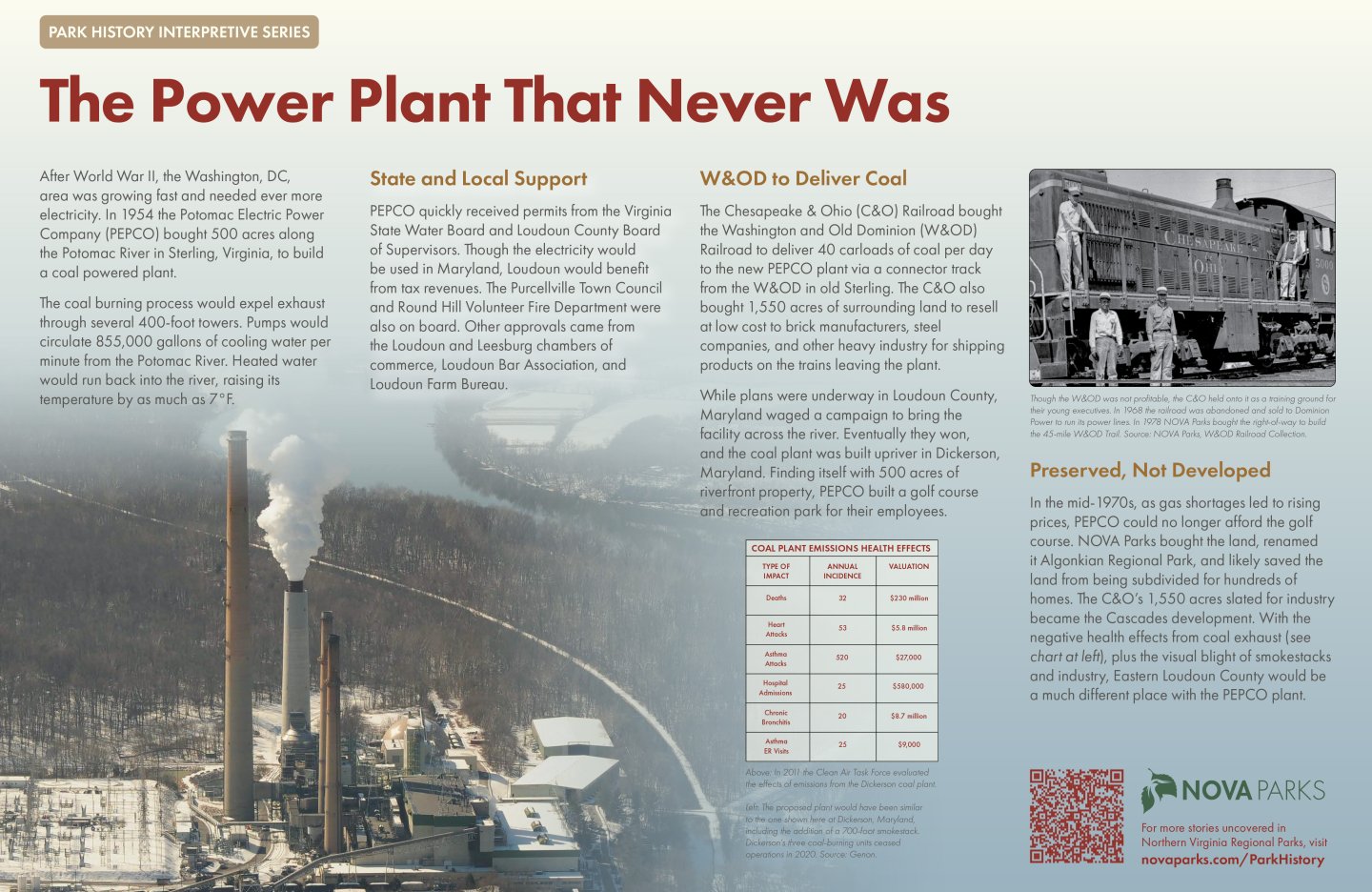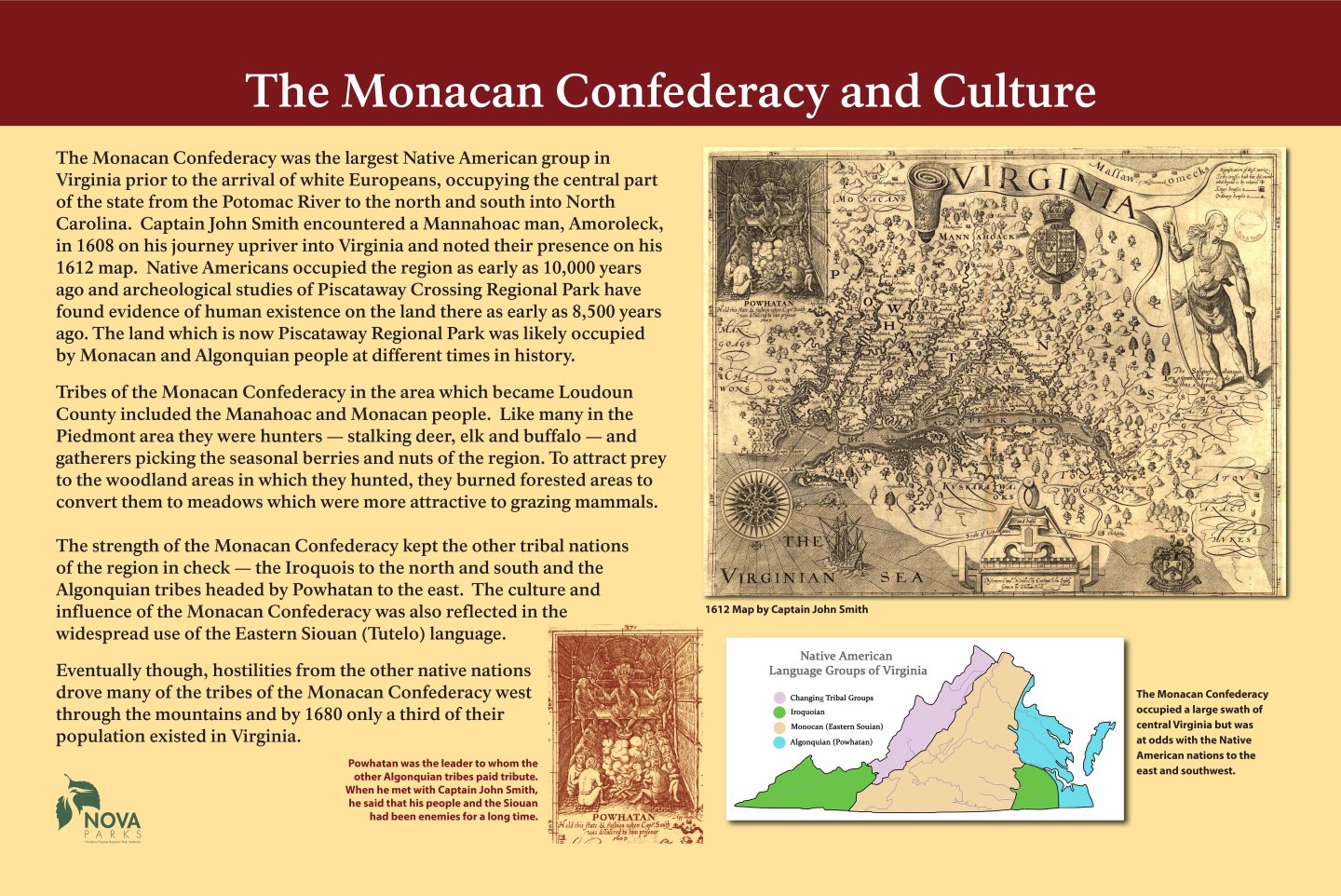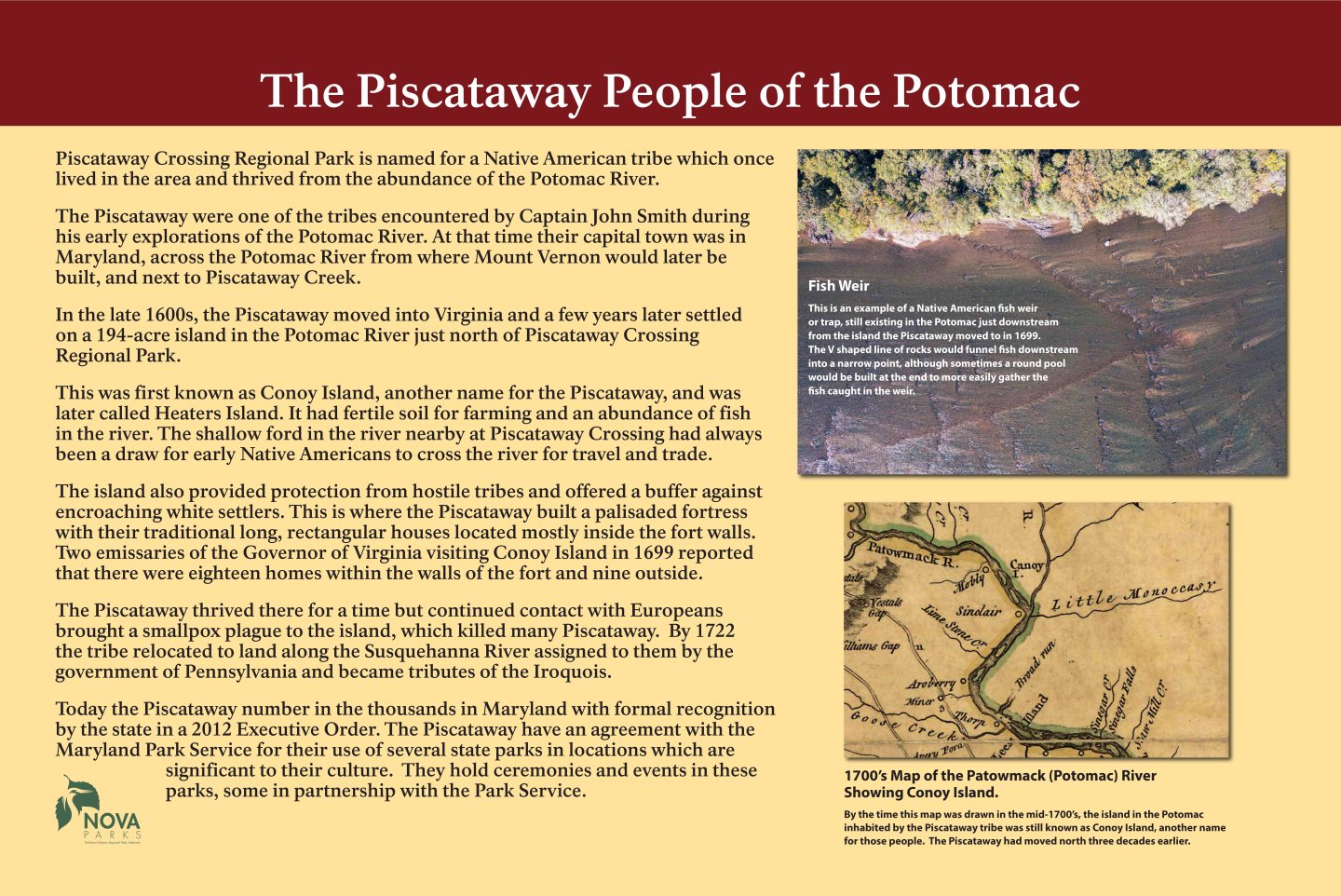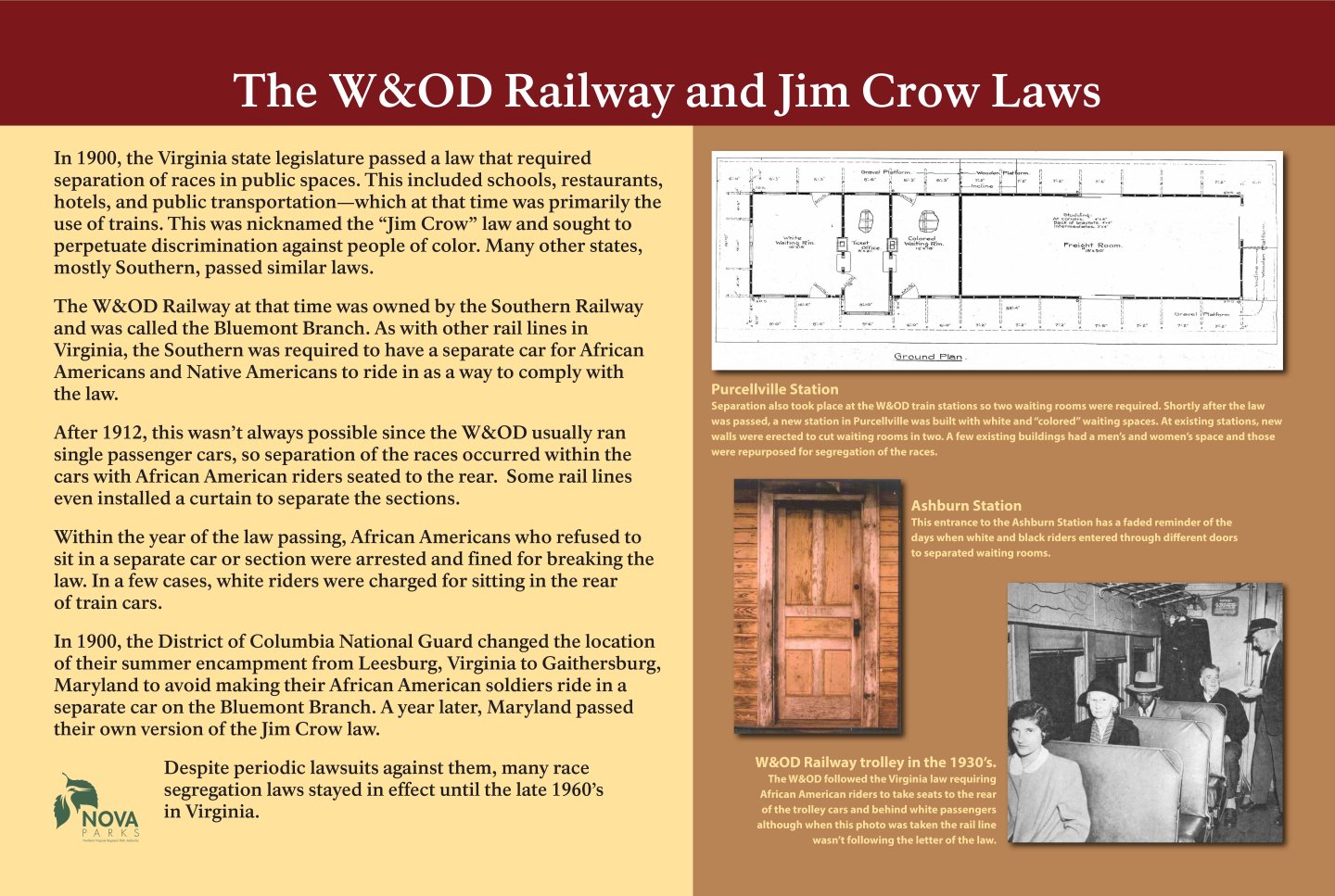Park History
Park History Interpretive Series: Enslaved Burial Ground at Bull Run Marina
This burial ground of enslaved people is tangible evidence of the system of slavery which existed in Virginia until the end of the Civil War when the 13th Amendment to the Constitution banned the practice. These individuals were held in bondage and forced to work the farm which became Bull Run Marina.
Park History Interpretive Series: Enslaved Workers at Temple Hall Farm
When Temple Hall Farm was established in 1812, the house and farm buildings of the time were likely built with Black enslaved workers. Enslaved workers were held in bondage there for the next 50 years to provide free labor for the property owners.
Park History Interpretive Series: Conditions of the Enslaved at Temple Hall Farm
The twenty-two enslaved workers at Temple Hall probably performed functions like those at other farms in Loudoun. The farm raised a variety of crops including corn, wheat and potatoes and the adult male (and at times female) enslaved worked in the fields planting, weeding and harvesting. Mason also raised livestock including beef cattle, milk cows, hogs and sheep so the male enslaved tended to these animals as well as the horses kept for riding and plowing.
Park History Interpretive Series: African American Cemetery at Bull Run Park
This late 18th-century African American cemetery contains 91 burials of people who were likely free and enslaved. Members of the extended Harris family are buried here.
Park History Interpretive Series: First Black Combatant of the Civil War
During the Federal retreat at Ball’s Bluff, Lewis A. Bell, a free African American camp worker, may have been the first Black man to fire a gun in support of the Union Army.
According to the 1870 edition of History of Worcester in the War of the Rebellion, Bell worked for Colonel Milton Cogswell, 42nd New York Infantry Regiment, while other sources cite his involvement with a Massachusetts unit. Bell “supplied himself with arms, and loaded and fired with great spirit” before being taken to Richmond as a prisoner of war.
Park History Interpretive Series: The Family of Henry and Jemima Harris
Henry Harris was descended from a formerly enslaved man and woman freed by Robert Carter Ill in the early 1800s. In 1844 Alfred Ball of Prince William County sold Harris 15 acres located just north of today's 1-66 and Bull Run Regional Park. The 1850 census recorded Harris as a farmer and the "only person" living on his farm. The Slave Schedule of that census, however, listed the enslaved residents of Henry's farm as of a woman of 35, a girl of 6 and boys of 4 and 2. They were his wife Jemima and their children.
Park History Interpretive Series: Robert Carter III and His Deed of Gift
Robert Carter Ill was born in 1728 to one of the richest Colonial families of the time. His grandfather, Robert "King" Carter, owned 295,000 acres of land and hundreds of enslaved people. Young Carter inherited much of that wealth in 1732 when his father and grandfather died within months of each other. Most of Centreville and Manassas were part of Carter's Leo Plantation.
Park History Interpretive Series: Marquis de Lafayette at Temple Hall
In July 1824, the Marquis de Lafayette returned to the United States for an extensive tour of the country he fought with against Great Britain during the American Revolution. He visited all 24 states, and near the end of that tour came to Loudoun County. One of the homes he visited was Temple Hall.
Park History Interpretive Series: The Power Plant That Never Was
After World War II, the Washington, DC, area was growing fast and needed ever more electricity. In 1954 the Potomac Electric Power Company (PEPCO) bought 500 acres along the Potomac River in Sterling, Virginia, to build a coal powered plant.
Park History Interpretive Series: The Monacan Confederacy and Culture
Native Americans occupied the region as early as 10,000 years ago and archeological studies of Piscataway Crossing Regional Park have found evidence of human existence on the land there as early as 8,500 years ago. The land which is now Piscataway Regional Park was likely occupied by Monacan and Algonquian people at different times in history.
Park History Interpretive Series: The Piscataway People of the Potomac
Piscataway Crossing Regional Park is named for a Native American tribe which once lived in the area and thrived from the abundance of the Potomac River.
The Piscataway were one of the tribes encountered by Captain John Smith during his early explorations of the Potomac River. At that time their capital town was in Maryland, across the Potomac River from where Mount Vernon would later be built, and next to Piscataway Creek.
Park History Interpretive Series: Native American People at Fountainhead
Before Europeans arrived, the land that is now Fountainhead Regional Park was home to Native Americans. There is evidence of human habitation as many as 10,000 years ago. The area was likely occupied by Monacan and Algonquian tribes, since both settled along waterways such as Bull Run and the Occoquan River.
Park History Interpretive Series: The W&OD Railway and Jim Crow Laws
In 1900, the Virginia state legislature passed a law that required separation of races in public spaces. This included schools, restaurants, hotels, and public transportation—which at that time was primarily the use of trains. This was nicknamed the “Jim Crow” law and sought to perpetuate discrimination against people of color. Many other states, mostly Southern, passed similar laws.
